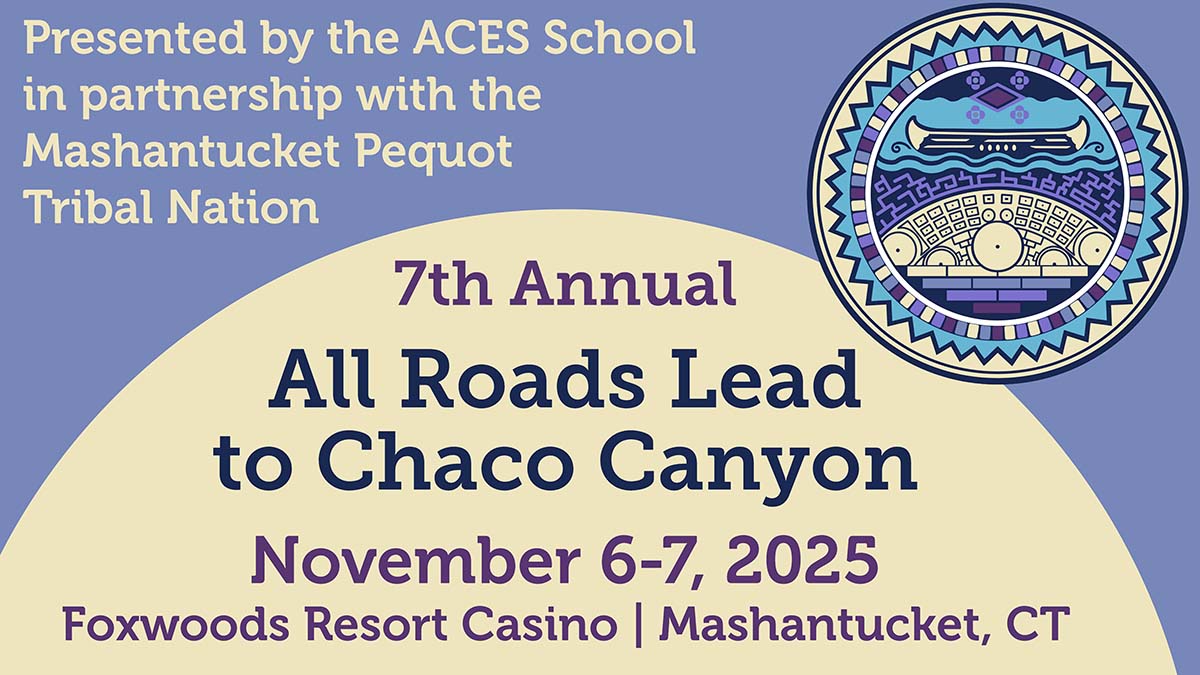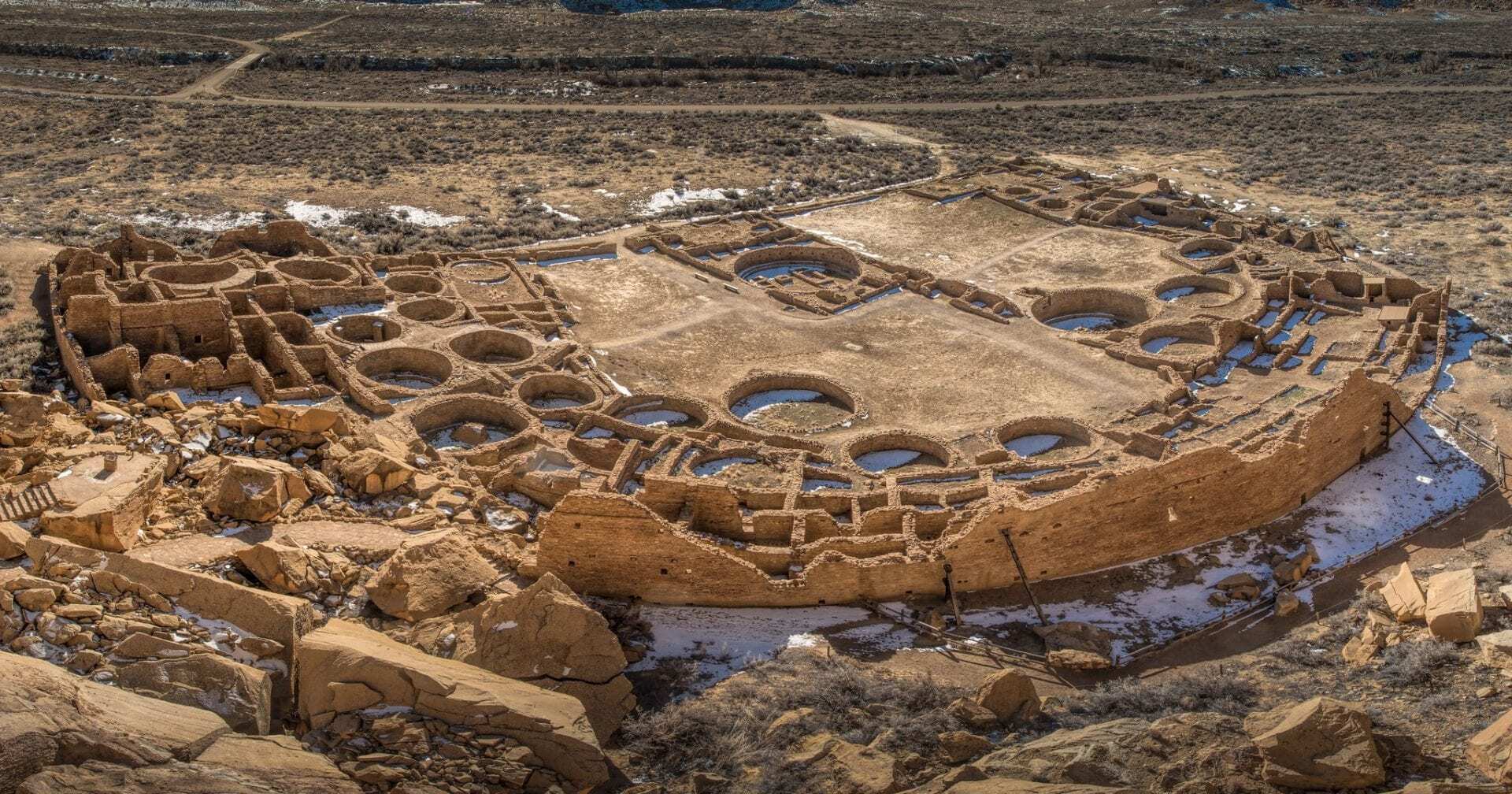
- Details
- By The ACES School
This November, experts in fintech, crypto, and A.I. will gather at Mashantucket, one of the longest continually occupied Native reservations in North America, for the seventh annual All Roads Lead to Chaco Canyon conference: Navigating Streams of the Digital Economy.
Named after the ancient Indigenous trade hub, Chaco Canyon, the conference is designed to educate participants on the legal and economic reforms necessary to revitalize trade among Native nations and develop the private sector economy on reservations. This year's focus is on the economic opportunities available in the digital age, with sessions on artificial intelligence, data centers, digital jurisdiction, online gaming and sports betting, and Indigenous culture in the information age.
Always held on Native lands in partnership with the host tribe, previous All Roads Lead to Chaco Canyon conferences were held at the Pascua Yaqui Tribe, Coushatta Tribe of Louisiana, and Navajo Nation. This year, The ACES School, an Arizona-based and Indigenous-led 501c3 nonprofit organization, partners with the Mashantucket Pequot Tribal Nation (MPTN) to bring All Roads Lead to Chaco Canyon to the Foxwoods Resort Casino on November 6th and 7th.
 Pueblo Bonito at All Roads Lead to Chaco Canyon, Chaco Culture National Historical Park, New Mexico Creator: Andrew Kearns; Copyright: Unrestricted
Pueblo Bonito at All Roads Lead to Chaco Canyon, Chaco Culture National Historical Park, New Mexico Creator: Andrew Kearns; Copyright: Unrestricted
"The Mashantucket Pequot Tribal Nation could not be a more perfect host," says Joseph Austin (Navajo Nation), CEO of The ACES School and co-founder of the All Roads Lead to Chaco Canyon conference. "Historically, the MPTN engaged in trade with other Native nations up and down the Atlantic coast, using local rivers and waterways as transportation. It also formed international relations with English and Dutch settlers, making the Nation a revered, well-respected economic powerhouse within the region."
The MPTN continues to drive economic growth with its Foxwoods Resort Casino and other enterprises. The fourth largest casino in the world, Foxwoods is a major economic driver in the state, employing thousands of people and contributing around $1 billion to the Connecticut economy each year.
Attendees at this year’s All Roads Lead to Chaco Canyon: Navigating Streams of the Digital Economy can expect to learn about digital ways of doing business and how to harness technology for governance and economic development, conference hosts say.
Chaco Canyon has been dubbed an "ancient Las Vegas," organizers explain, because archaeologists have found evidence of Indigenous trade goods from throughout the Western Hemisphere: Macaw and other parrot feathers, cacao beans, and copper from Meso and South America; turquoise, pottery, and obsidian from the Rocky Mountains; and seashells from the Pacific Coast and the Gulf. These relics suggest that, at one point, “all roads” of the pre-Columbian trade network led to Chaco Canyon and that trade was vital to Indigenous economies.
Restoring international trade and relations is the goal of All Roads Lead to Chaco Canyon, and "an important part of the journey towards tribal self-determination," says law professor and conference co-founder Adam Crepelle (United Houma Nation).
Austin, Crepelle, and their team at The ACES School encourage Indigenous leaders, scholars, students, entrepreneurs, and anyone else interested in doing business in Indian Country to attend this year's conference.
Austin extends an invitation across Indian Country to "join the movement to reignite the entrepreneurial spirit that lies within all Native nations, and reawaken the ancient trade relations that once existed among Indigenous peoples throughout the western hemisphere."
The seventh annual All Roads Lead to Chaco Canyon: Navigating Streams of the Digital Economy takes place November 6-7, 2025, at Foxwoods Resort Casino.
Online event registration is open now, with Early Bird Registration and hotel discounts available until September 30 and October 16, respectively.
Dedicated to creating “Native solutions through education,” The ACES School is an Indigenous-led non-profit corporation with tax-exempt status under IRS section 501(c)(3)
Help us defend tribal sovereignty.
At Native News Online, our mission is rooted in telling the stories that strengthen sovereignty and uplift Indigenous voices — not just at year’s end, but every single day.
Because of your generosity last year, we were able to keep our reporters on the ground in tribal communities, at national gatherings and in the halls of Congress — covering the issues that matter most to Indian Country: sovereignty, culture, education, health and economic opportunity.
That support sustained us through a tough year in 2025. Now, as we look to the year ahead, we need your help right now to ensure warrior journalism remains strong — reporting that defends tribal sovereignty, amplifies Native truth, and holds power accountable.
 The stakes couldn't be higher. Your support keeps Native voices heard, Native stories told and Native sovereignty defended.
The stakes couldn't be higher. Your support keeps Native voices heard, Native stories told and Native sovereignty defended.
Stand with Warrior Journalism today.
Levi Rickert (Potawatomi), Editor & Publisher
